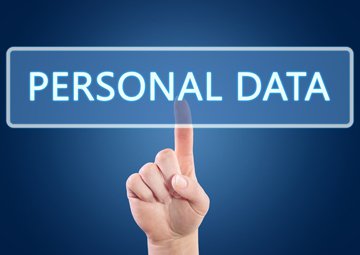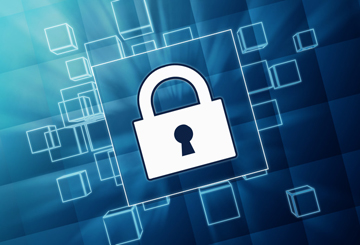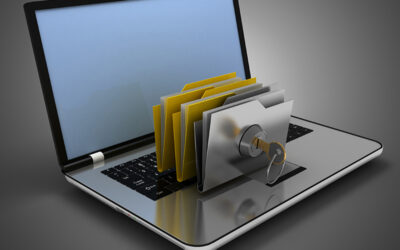
Data Compromise – a Stark Reality
Risk Based Security estimates that just last year more than 4.2 billion sensitive records were compromised – information that opens the door to all kinds of identity- related maleficent actions, including account takeover, credit draining, theft of healthcare information and even the commission of a crime in the victim’s name. This highlights the need for better security measures at home. The following are some tips to protect your personal data from theft.
Effective Data Protection Measures
Some of the basics about protecting yourself from any theft are: never answering the phone by saying “yes”, use of two factor authentication whenever its offered, and not to use long and strong password to access more than one account. Although these tips are useful, sometimes people are not aware that identity theft can happen at home, so here goes:
- Reduce your exposure: Do not authenticate yourself to anyone else unless you are in control of the interaction. Protect your password, safeguard all documents that can hijack your identity and also consider freezing your credit card if lost.
- Keep an eye on your accounts: Keep an eye on credit report regularly and your credit card score. Also, review all major accounts daily if possible. Sign up for free transaction alerts from financial services, institutions and credit card companies or purchase an advanced credit and identity monitoring program.
- Manage the damage: Make sure you quickly get on top of any incursion into your identity and enroll in a program where professionals help to navigate and resolve identity compromises. These are often available for free or at minimal cost through insurance companies, financial services, etc.
Irrespective of your likeability, someone you know may be probably willing to and able to steal your identity. So to avoid such occurrences, minimizing your exposure at home is essential. Identify what kind of personally identifiable information (PII) is at your home – from tax returns to password cheat sheets – and also think about where these things are stored. It is important to keep tax returns in a locked filing cabinet with the key hidden. Individuals who are regularly in and out of your house are in a position to know what you have and where you have it and the most opportune moments to steal it. Here are ten useful tips to follow:
- Miniaturize your data: There may be huge piles of paper documents that are hard to store and all documents may not be necessary. Scan all vital documents and shred unwanted documents; this eliminates unnecessary clutter in your house. Make sure that all data is stored also in a place other than your house to prevent loss of data.
- Use two factor data management: Encrypted drive is a good option to store important documents and also make sure to have backup of all data.
- Use encrypted external storage: Whether you choose cloud storage, external hard drive or a thumb drive, store all your data in encrypted form as it offers security features such as biometric or two-factor authentication.
- Backup your data: This is very important because with timely backup, you will have a duplicate copy of your data. If a device is stolen, lost or compromised, you won’t lose your sensitive and important information. Maintain a backup on a different device such as an external hard drive. The cloud is also a viable backup option. You should however, ensure sound security practices. Cloud storage enables easy access of your data even when your hardware is compromised.
- Anti malware protection is must: Malware is a serious concern. It is known for cropping up in inconspicuous places, and users are often totally unaware of it. Anti malware protection is essential for ensuring security for your devices. Malware is software designed to infiltrate or damage your computer without your consent. Malware includes computer viruses, worms, Trojan horses, spyware, scareware and more. It can be present on websites and emails in downloadable files, photos, videos etc. The best way to get rid of it is by doing periodic scans for spyware and avoiding clicking on suspicious email links or websites. Sometimes malware is cleverly disguised as an email from a friend, or a useful website. Even the most cautious of web surfers will likely pick up an infection at some point.
- Automate your software updates: It is important to ensure that you download the latest security updates from operating systems and other software, and enable automatic updates. Many software programs will automatically connect and update to defend against known risks. Turn on automatic update if that is an available option.
Secure your wireless network at your home or business: This is a valuable tip for both small business owners and individuals or families. It is always recommended to secure your wireless network with a password. This prevents unauthorized individuals from breaking into your wireless network. Even if they are merely attempting to get free Wi-Fi access, you don’t want to accidentally share private information with other people who are using your network without permission. If you have a Wi-Fi network for your workplace, make sure it is secure, encrypted and hidden. You can hide your Wi-Fi network – set up your wireless access point or router so it does not broadcast the network name known as the Service Set Identifier (SSID).
- Use passphrases rather than password: A passphrase is a simply a different way of thinking about a much longer password. Dictionary words and names are no longer restricted. In fact, one of the very few restrictions is the length – 15 characters. Your passphrase can be a favourite quote from a magazine, book or movie, a series of words that is easy for you to remember, and use a combination of numbers and special characters. Another thing to remember is not to store your password with your laptop or mobile device, where anyone can access the same.
- Make sure to overwrite all deleted files: When you delete your information on a computing device, it is not deleted permanently. It exists on disk and can be recovered by tech-savvy criminals who are after your personal information. To ensure that your old data is completely gone, overwrite it. There are tools available to overwrite old data.
- Do not forget to delete old files from cloud backups: If you use cloud storage service for data backup, make sure that you delete files from those backup services.
Digital transformation of your vital documents with the help of a document scanning company is a smart option to prevent data loss or identity theft. It also allows you to store all data efficiently, and in an organized manner. This will reduce the need for storage space in the home, and helps you to retrieve documents quickly. Ensure that your financial, and personal digital information and passwords are all safe and protected via sound security measures. Protect your desktop computers, laptops and mobile devices from cybercriminals, malware, spyware and other threats and follow best practices to use the Internet safely.

 Secure your wireless network at your home or business: This is a valuable tip for both small business owners and individuals or families. It is always recommended to secure your wireless network with a password. This prevents unauthorized individuals from breaking into your wireless network. Even if they are merely attempting to get free Wi-Fi access, you don’t want to accidentally share private information with other people who are using your network without permission. If you have a Wi-Fi network for your workplace, make sure it is secure, encrypted and hidden. You can hide your Wi-Fi network – set up your wireless access point or router so it does not broadcast the network name known as the Service Set Identifier (SSID).
Secure your wireless network at your home or business: This is a valuable tip for both small business owners and individuals or families. It is always recommended to secure your wireless network with a password. This prevents unauthorized individuals from breaking into your wireless network. Even if they are merely attempting to get free Wi-Fi access, you don’t want to accidentally share private information with other people who are using your network without permission. If you have a Wi-Fi network for your workplace, make sure it is secure, encrypted and hidden. You can hide your Wi-Fi network – set up your wireless access point or router so it does not broadcast the network name known as the Service Set Identifier (SSID).

